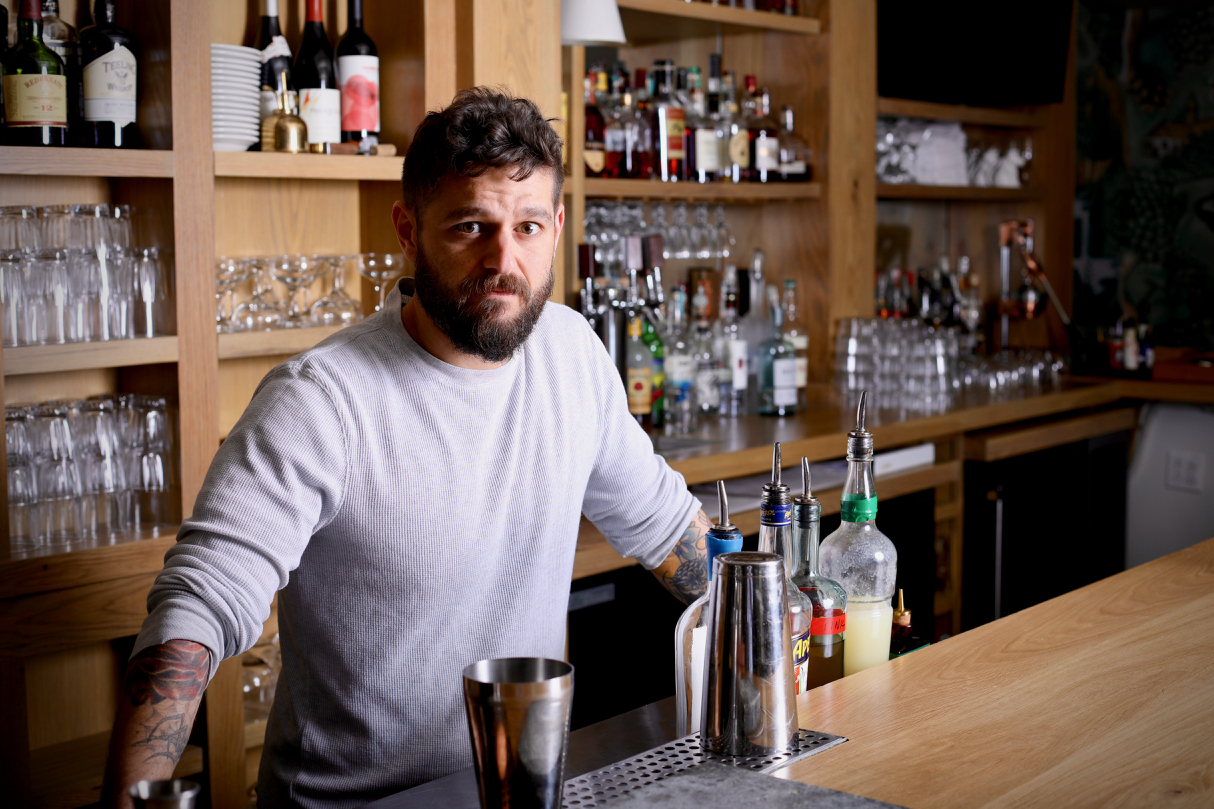
Mixology Spirit: Craig Ventrice
In this edition of Mixology Spirit, we sat down to discuss the bartending life with Craig Ventrice as he built a delicious cocktail called, The Moneymaker.
Batchers: Where do you work and what’s your role?
Craig: I am the Bar and Beverage Manager for Bill Taibe’s Westport-based restaurant group, which includes Kawa Ni, The Whelk, and Jesup Hall. The majority of my time is spent behind one of those bars.
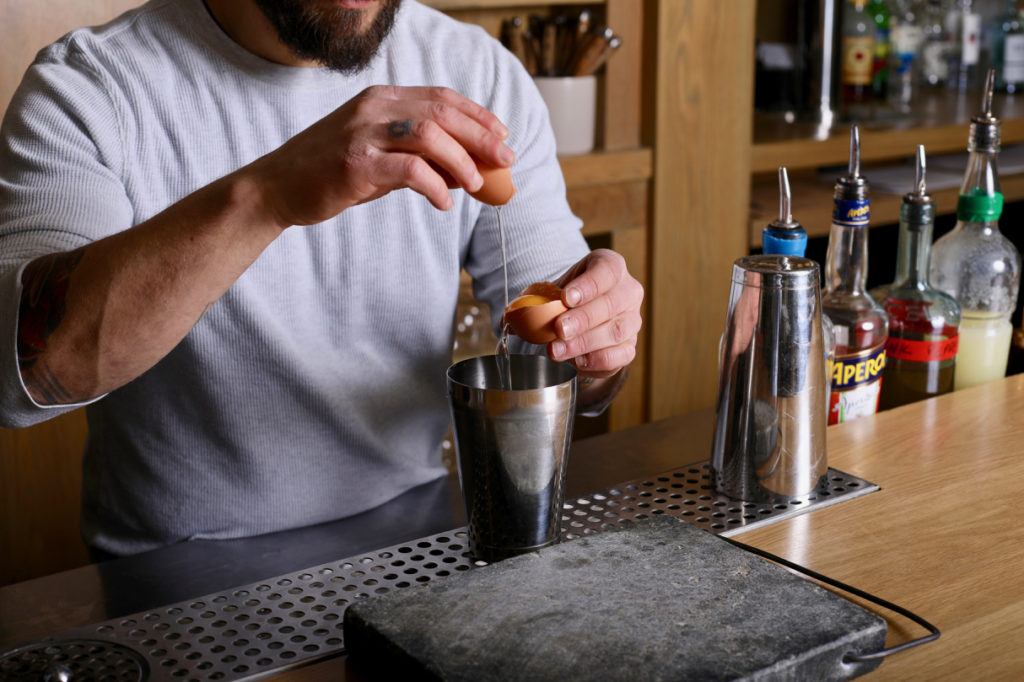
Batchers: When did you catch the mixology bug and why do you love it?
Craig: I’ve tended bar for around 13 years with some extended breaks throughout my career. Around 5 years ago, after my last fool-hearted attempt to find a “real job,” I came back to the industry to find that the role of a bartender was beginning to change in many ways. It was clear that there was a real shift happening. I decided to become a participant. I began studying, practicing, researching, and simply applied myself. The job became a “trade” at that point. I made a decision that if I was going to do this for a living, I had a responsibility to be as good at it as I could be. I still have a slight aversion to the title mixologist for more than one reason. I feel it’s a bit reductive. Drink mixing is simply one small part of the job. Bartenders are hosts, performers, entertainers, plumbers, electricians, mathematicians, janitors, problem solvers, pirates, and therapists. There is nobility to be found in this work, and the best among us are in touch with that nobility in every part of the job.
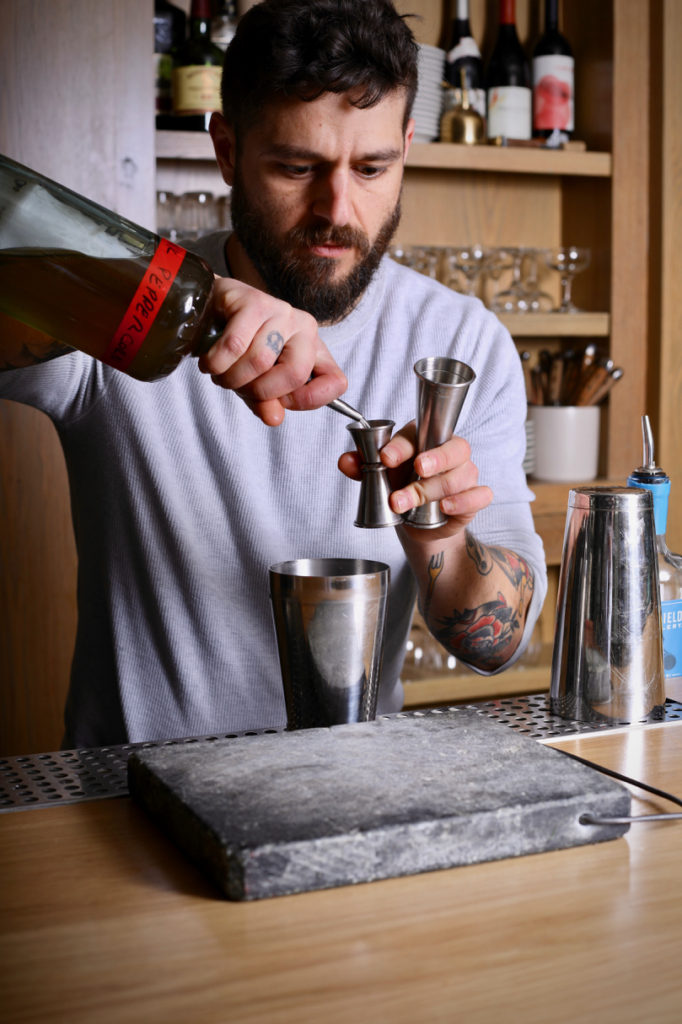
Batchers: What’s the difference between a “good” cocktail and a “great” cocktail?
Craig: I have had a lot of good cocktails. I like to think I’ve made a lot of really good cocktails. It’s been my experience that “great” happens by accident in most cases. I’ve recently been operating with a new outlook, which is minimalist compared to most trends of the day. Obscure, excessive, and complicated cocktails can certainly be great, but I find that most drinks have one or two too many ingredients. I’ve been working on getting to the finished product in the most direct way possible. The most common piece of advice I give to young bartenders is that when you think you’ve got a cocktail nailed down, remove the least important ingredient. Having worked with great chefs over the years, it turns out the best of them have figured this out in their cooking.
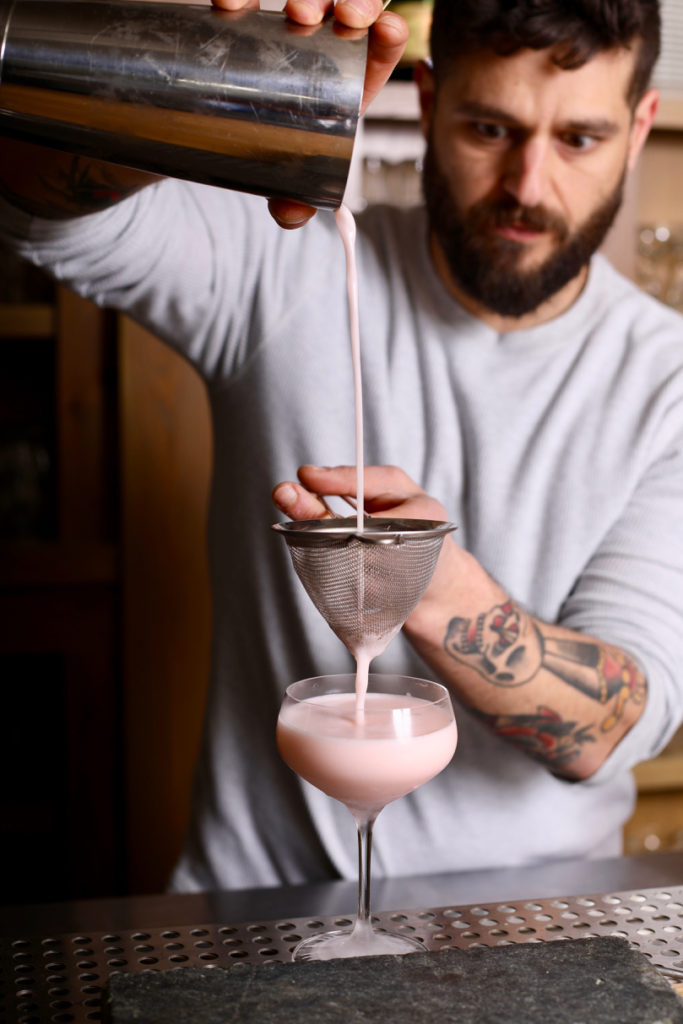
Batchers: Bartending is a hard job. Got a story about a grueling night behind the bar?
Craig: It is most certainly a physical job. I enjoy that part of it. It definitely catches up to you, so I’ve learned that taking care of myself physically and mentally helps me do my job well. That said, the most taxing part of the job, in my experience, is the need to be “on” for the duration of a long shift. I’m an introverted guy by nature, so that forces me to constantly remind myself that every guest deserves the most hospitable experience possible. In the 13th hour of a long double shift, that can be tough.
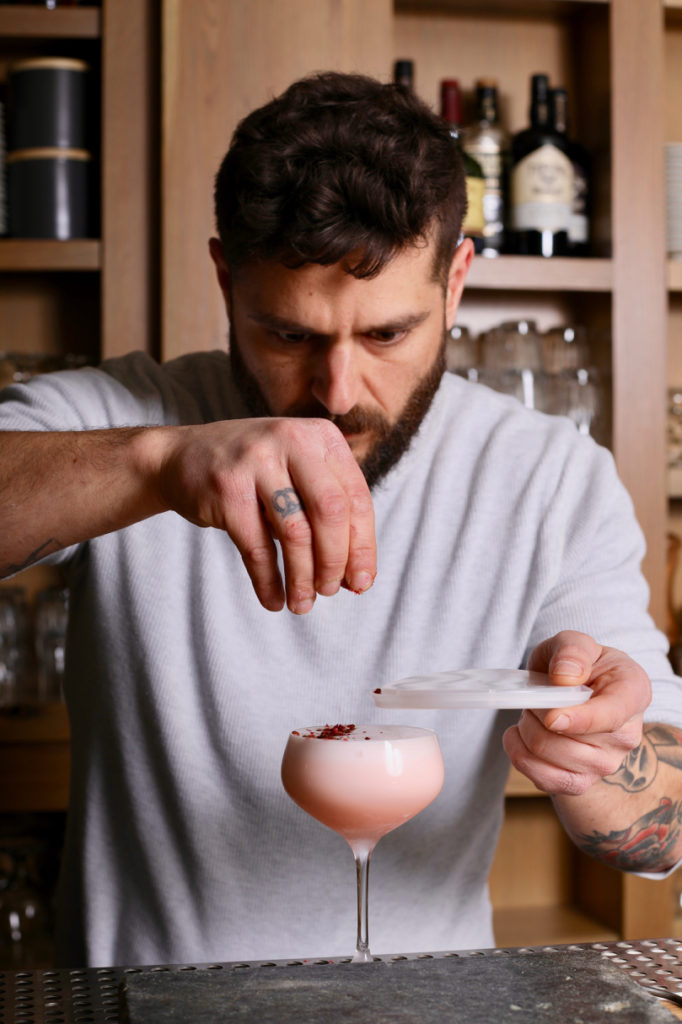
Batchers: What is your “go to” Litchfield Distillery spirit and why?
Craig: I love the Gin. It’s soft, nuanced and complex. It’s a great mixing spirit, especially for citrus forward or savory cocktail preparations.
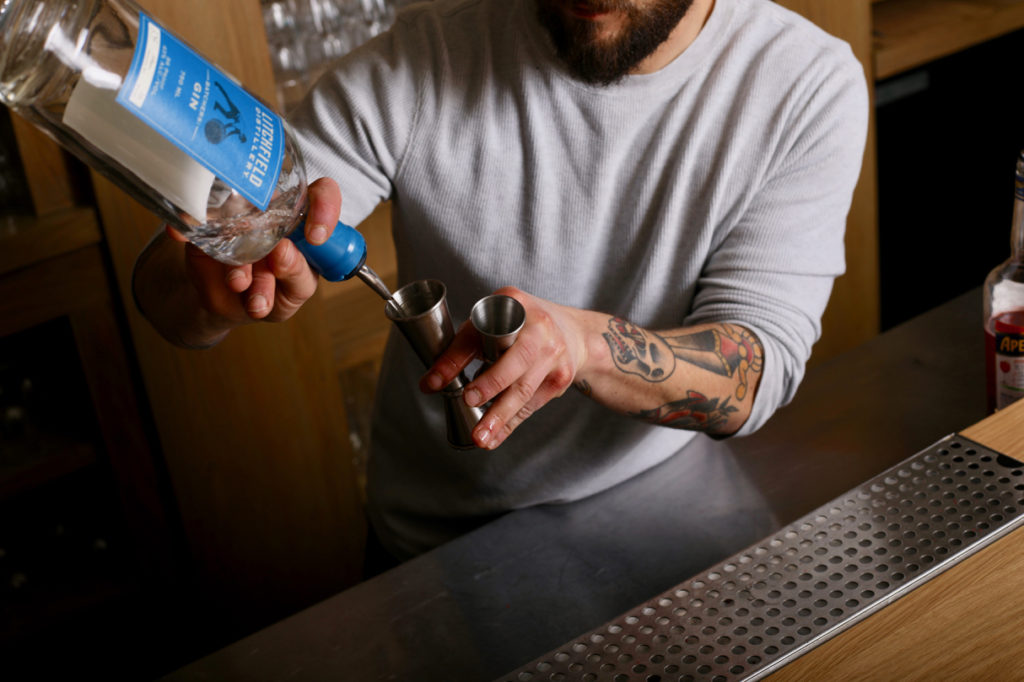
Batchers: What does The Spirit of Hard Work® mean to you?
Craig: I take great pride in being told how hard I work. Typically that compliment is given in response to the amount of hours I work in a typical week. Sure, that qualifies hard work. But the real work is constantly pushing to improve. Whenever I start believing that I’m really good at this thing, the universe tends to show me someone who is more knowledgeable, more skilled, or more accomplished. If I feel that I’ve genuinely given all of my attention and spirit to a shift behind the bar, or to learning about a spirit or technique, that’s where the pride comes from. I suppose the spirit of hard work is a blend of dedication, humility, and respect for the task at hand.
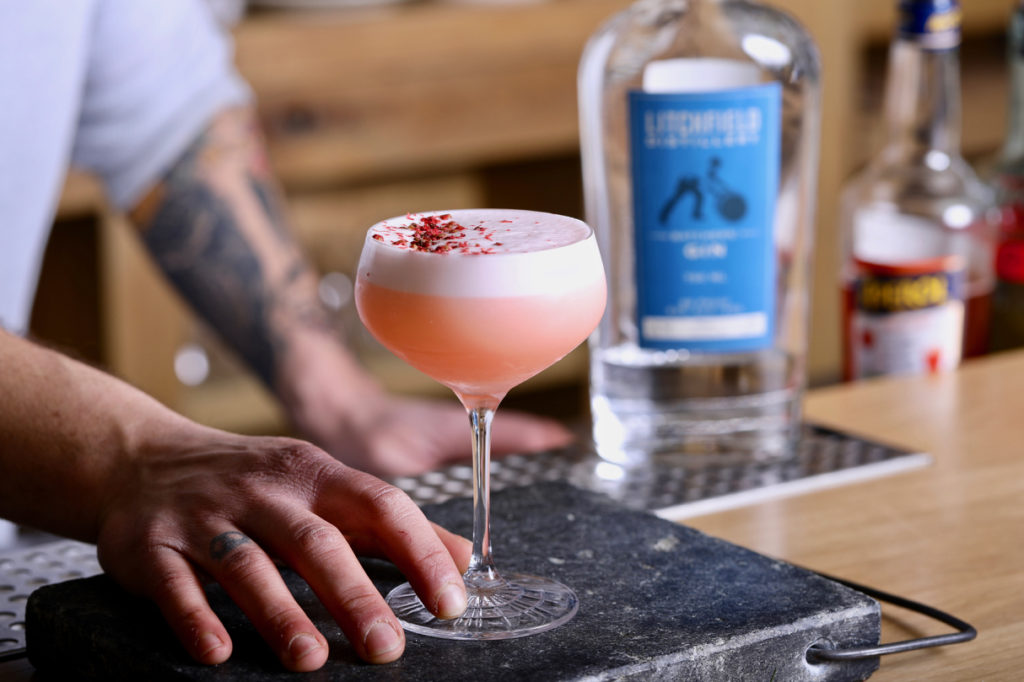
How to make The Moneymaker:
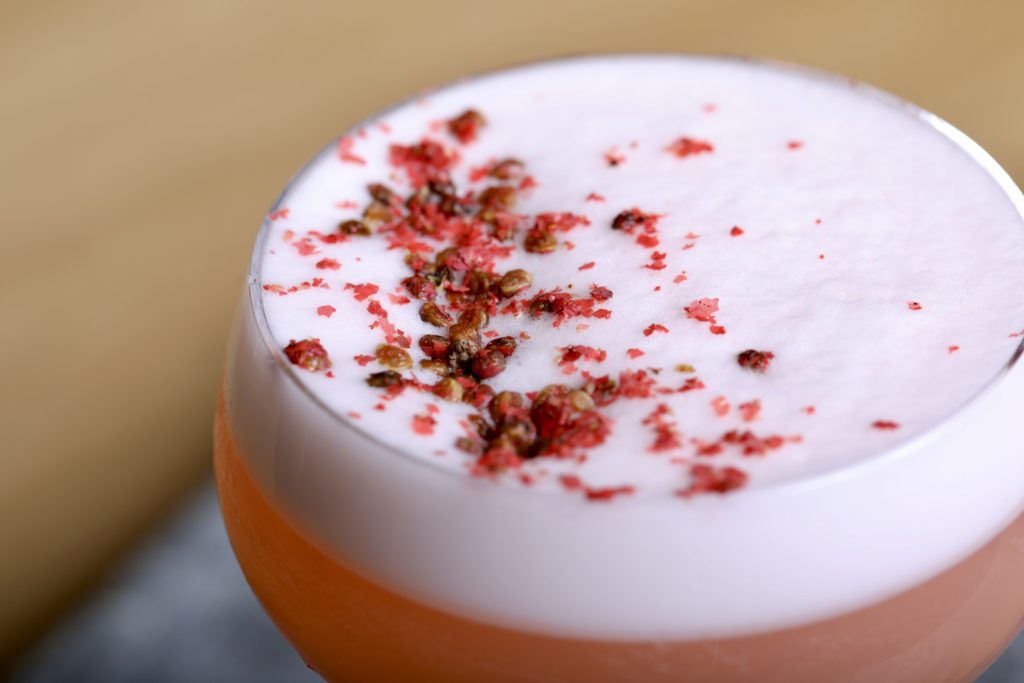
About Mixology Spirit: